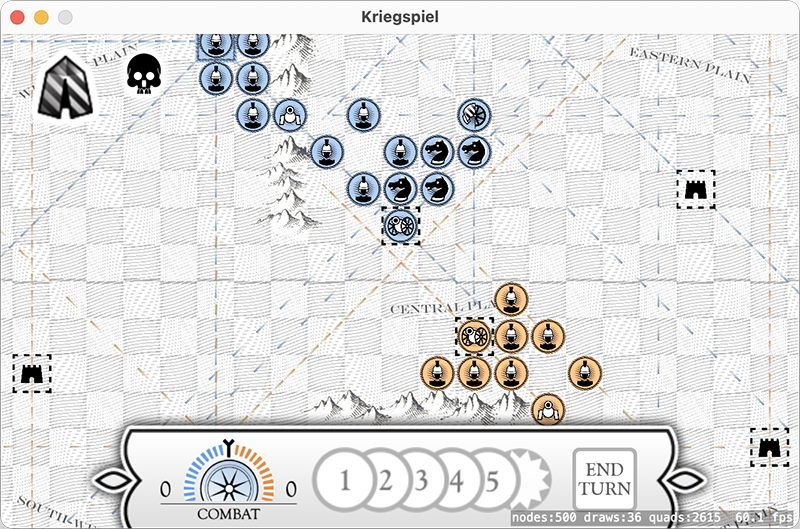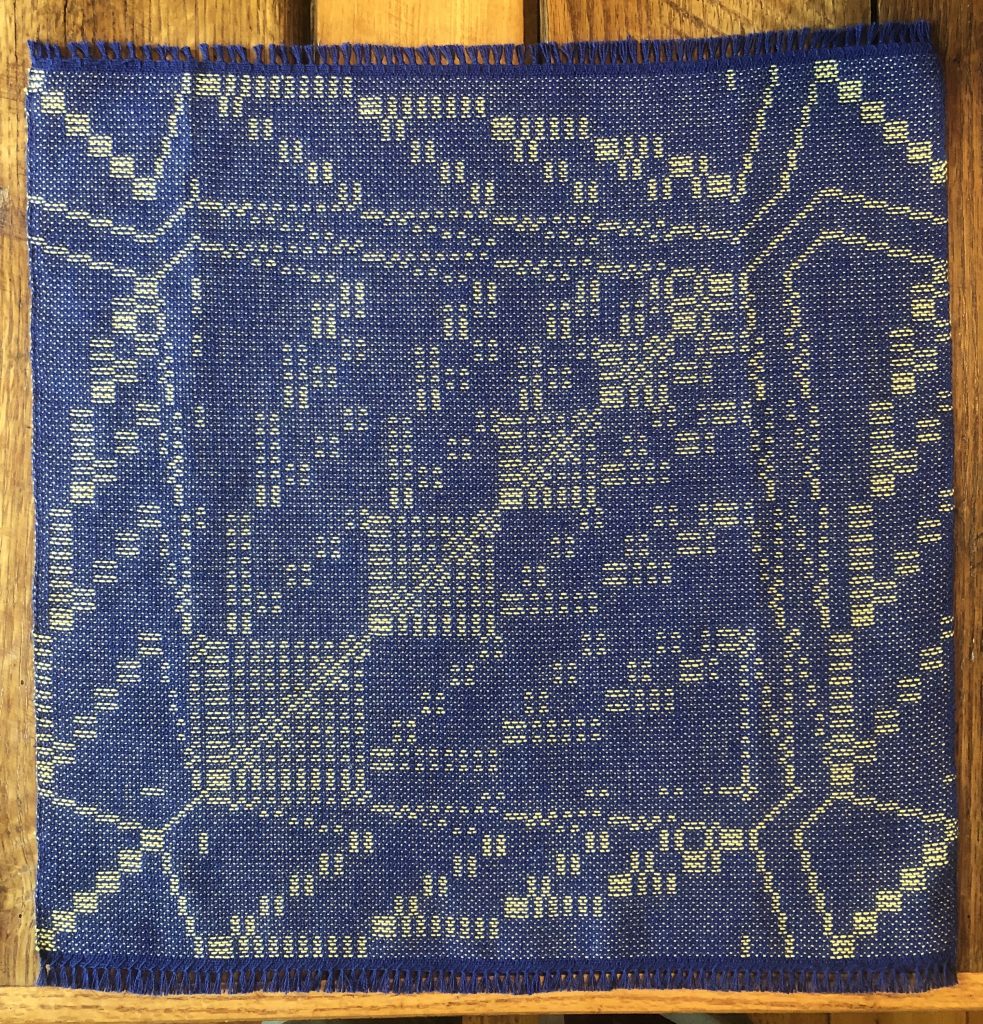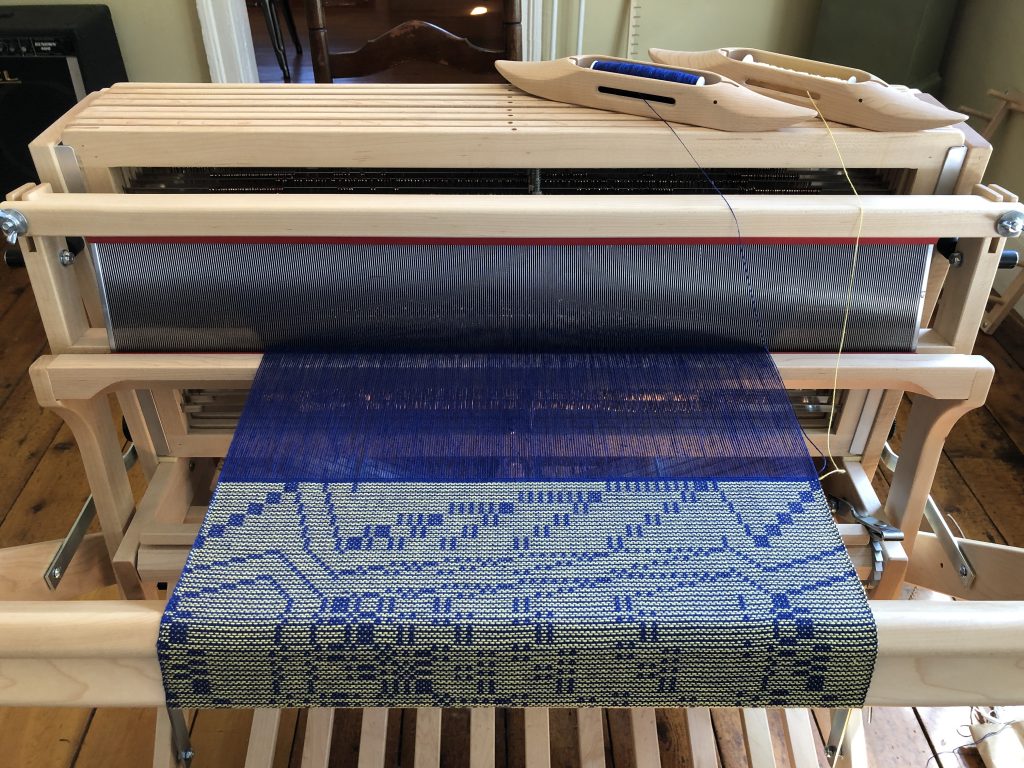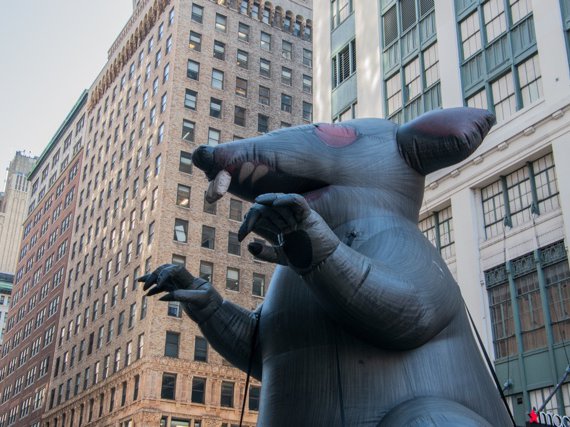
Happy to announce the re-launch of Kriegspiel. Fully rewritten from the ground up for iOS and macOS. Beta testing is now open! Please get in touch if you want to help as a tester.

Happy to announce the re-launch of Kriegspiel. Fully rewritten from the ground up for iOS and macOS. Beta testing is now open! Please get in touch if you want to help as a tester.
Excited to learn that Uncomputable is now printed! I'm still waiting to see a physical copy, but it should be soon. You can pre-order the book for 40% off at the Verso website. Planning some fun release events with friends and colleagues -- more on that soon. Anyone who wants to teach chapters from the book this term or next, please feel free to reach out. I'm happy to Zoom in to your class.
In the meantime here's some ephemera from the researching and drafting of the book.. which as you can see took me in some strange and interesting directions. This is from section two, which focuses on the intersection of weaving and computation through the work of Ada K. Dietz.
Planning out the loom tie-up and treadling for the weaving "AKDietz-2-3-O" by Ada K Dietz.
Analyzing and planning the weave for "AKDietz-6-2-SW" by Ada K Dietz. This was the most sophisticated work in her series of algebraic weaving patterns.
 "AKDietz-6-2-SW" by Ada K Dietz -- I had to weave it twice to get it right ... but finally success! (The image on page 96 of Uncomputable actually has a glaring error -- which I decided to leave as an easter egg for attentive readers..)
"AKDietz-6-2-SW" by Ada K Dietz -- I had to weave it twice to get it right ... but finally success! (The image on page 96 of Uncomputable actually has a glaring error -- which I decided to leave as an easter egg for attentive readers..) Hard at work on my "computer."
Hard at work on my "computer."
I've been finishing an essay for a friend about Friedrich Kittler and the "media a priori" of philosophy. It's an idea I have had on the back burner for several years. Ever since Wolfgang Ernst told me the story of Heidegger's radio--a burgundy Grundig 88, which he belatedly allowed into his otherwise techno-primitive hillside cabin during the Cuban Missile Crisis on fears of nuclear catastrophe--I've thought a lot about the technologies beneath and behind philosophy. I'm thinking of Freud's mystic writing-pad, or Nietzsche's typewriter (which Kittler devoted a whole chapter to in Discourse Networks). But that's just the start... Why not also Sarah Kofman's camera obscura, Du Bois's data vis, Derrida's Macintosh, Deleuze's VCR...a parade of philosophy's media a priori. Continue reading
What's Left of Philosophy -- absolute masterclass.
Acid Horizon -- love these guys.
Why Theory -- 95% wrong most of the time (why Hegel??) but very fun listening.
Aufhebunga Bunga -- high quality riffing.
Machinic Unconscious Happy Hour -- good vibes.
"...until the day when he himself closed his Macintosh."
Dear reader, I give you what might be the worst poem ever written by a theorist. Yes, I'm speaking of Michael Fried's poem titled "Macintosh," published by the venerable journal Critical Inquiry in 2007 in a special issue on the death of Jacques Derrida. Very difficult to top this...
+ + +
Macintosh
It all hangs by a hair:
one day everything is going well
and the next some test result comes back just slightly awry
and you are embarked.
When a visitor let drop the news
that Jacques was seriously ill
I interjected, "Vous êtes sûr?" What I meant was: How can that be--
as if the rate at which he produced his books
not to mention the avidity with which each was devoured
would keep him safe from harm
until the day when he himself closed his Macintosh.
I'm returning to Kittler more and more, and in fact trying to write about him... I hit on a treasure trove of material that I'll say more about in future. But for the moment I wanted to post a few thoughts about identity and difference, and how identity and difference connect with the digital and the analog. The prevailing position today is that the analog real is defined via difference while the digital symbol is defined via identity. There's something to that. But the more I explore the theory of the analog and the digital, the more convinced I am that identity and difference exist somehow before or beyond the digital and the analog. We can talk about analog identity and analog difference, but we can also talk about digital identity and digital difference. Let's walk through a bit of this with reference to Kittler and Lacan. Continue reading
In the past I've made claims like "software is math"...and I usually get taken to task over it. I acknowledge that others, particularly humanists and social scientists, might be uncomfortable with such a reduction. Math and computation are not the same thing. And certainly the experience or usage of computers is a broad arena, spanning many fields including sociology and anthropology, and not merely reducible to boolean logic or symbol manipulation. Given time it would be necessary to define these terms more clearly and show how they are related. That said, I consider math, logic, and computation to be intimately connected, often so intimately connected as to justify reducing one to another. So for the time being I'm tempted not to ameliorate the debate but in fact to push this point further. Continue reading
No, you can't. At least that's the conclusion of two key philosophers of digitality, Nelson Goodman and Gottlob Frege. It's impossible to forge the discrete elements of a symbolic system, elements like the letter "A," the number "7," or the truth values "true" and "false."

Symbolic expressions like words and sentences can be forged, of course, not to mention paintings which are eminently forgeable. But symbols themselves are unforgeable. Or so claim both Goodman and Frege.
I described Frege previously in a post on "Digital Univocity." Today I'd like to explore Goodman. If Frege approached the question from the perspective of sets and truth values, Goodman's approach was essentially semiotic and graphical. And while they both come to the same conclusion, they do so for quite different reasons. It's worth walking through the argument to see why and how they claim the uniqueness of discrete atoms. This sense of the absolute incorruptibility of the symbolic order gets to the very heart of digital philosophy. Continue reading
UPDATE -- GSOC has reached a tentative agreement with the administration. Very proud of all the graduate workers at NYU. Strikes work!
+ + +
I support the NYU Graduate Student Organizing Committee (GSOC) in their process of negotiating a fair contract with the university administration. NYU president Andrew Hamilton -- who makes two million dollars per year -- has announced he won't negotiate, thus forcing a strike by graduate students.
As an NYU faculty member I stand with the graduate students. I will be respecting the picket line both physically and virtually, including classes and public events.
If you work at NYU please consider signing this open letter calling on the university to settle a fair contract.
Please also consider donating to the mutual aid fund.

In March 2020 I participated in a round table discussion at New York University on the question of epigenesis in the work of Catherine Malabou. Along with Malabou herself, we were joined by Alexander Miller, Emily Apter, Peter Szendy, and Emanuela Bianchi. The talks from the event have been edited and published in the current issue of October magazine under the title "On Epigenesis."